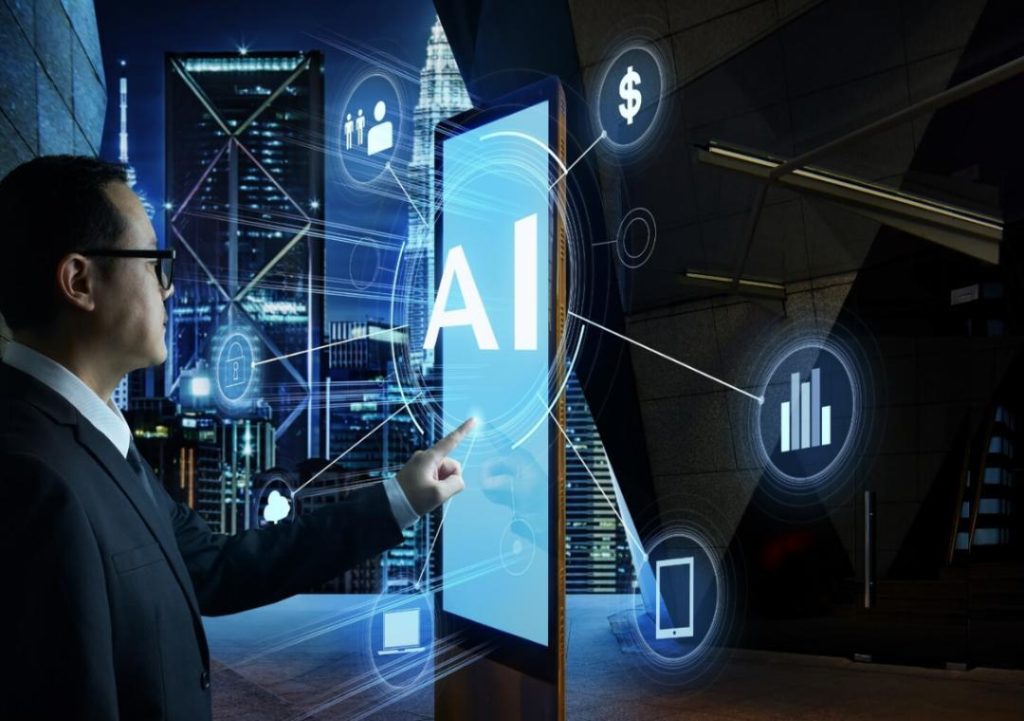
AI & ML now power over 77% of business processes
In today’s digital-first world, the importance of Artificial Intelligence (AI) and Machine Learning (ML) cannot be overstated. Gone are the days when these terms were reserved for science fiction movies or futuristic concepts. AI and ML have become operational essentials for businesses, transforming the way they operate and interact with customers.
According to a recent report, over 77% of enterprises now use AI and ML to improve productivity, reduce costs, and personalize user experiences. This shift is not optional; it’s fundamental to staying competitive in a rapidly evolving market. In this blog post, we’ll explore the significance of AI and ML in modern business and how they’re being used to drive growth, innovation, and success.
What is AI and ML?
Before we dive into the importance of AI and ML, let’s briefly define what they are. Artificial Intelligence refers to the development of computer systems that can perform tasks that typically require human intelligence, such as learning, problem-solving, and decision-making. Machine Learning, on the other hand, is a subset of AI that enables systems to learn from data and improve their performance over time.
How is AI and ML important in business?
So, why are AI and ML so crucial for businesses? The answer lies in their ability to automate and optimize various business processes, freeing up human resources to focus on higher-value tasks. Here are some ways AI and ML are being used to drive business success:
- Customer Support: AI-powered chatbots are revolutionizing customer support, providing 24/7 assistance and resolving issues quickly and efficiently. This has led to significant reductions in customer wait times and improved overall customer satisfaction.
- Fraud Detection: ML algorithms are being used to detect and prevent fraudulent activities in real-time, reducing financial losses and enhancing overall security.
- Predictive Maintenance: AI-powered predictive maintenance is enabling businesses to detect equipment failures before they occur, reducing downtime and improving overall efficiency.
- Personalization: ML algorithms are being used to personalize user experiences, recommending products and services based on individual preferences and behavior.
- Process Automation: AI and ML are being used to automate repetitive and time-consuming tasks, freeing up human resources to focus on more strategic activities.
- Data Analysis: AI and ML are enabling businesses to analyze large datasets quickly and accurately, providing valuable insights that inform business decisions.
- Marketing: AI-powered marketing is enabling businesses to personalize marketing campaigns, optimize ad targeting, and improve overall ROI.
Real-world examples of AI and ML in business
- Healthcare: AI-powered diagnostic tools are being used to detect diseases earlier and more accurately, improving patient outcomes and reducing healthcare costs.
- Finance: ML algorithms are being used to detect and prevent financial fraud, reducing losses and improving overall security.
- Retail: AI-powered recommendation engines are being used to personalize product recommendations, improving customer satisfaction and increasing sales.
- Manufacturing: AI-powered predictive maintenance is being used to reduce downtime and improve overall efficiency in manufacturing processes.
The future of AI and ML in business
As AI and ML continue to evolve, we can expect to see even more innovative applications across various industries. Here are some trends to watch:
- Increased Adoption: AI and ML will become even more ubiquitous, with more businesses adopting these technologies to stay competitive.
- Improved Accuracy: ML algorithms will continue to improve in accuracy, enabling businesses to make more informed decisions.
- Explainability: There will be a growing need for AI and ML models to be explainable, providing transparency and accountability.
- Edge AI: AI will move to the edge, enabling devices to process data locally and reducing the need for cloud-based processing.
Conclusion
The importance of AI and ML in business cannot be overstated. As we’ve seen, these technologies are being used to drive growth, innovation, and success across various industries. The shift to AI and ML is not optional; it’s fundamental to staying competitive in a rapidly evolving market. As businesses continue to adopt these technologies, we can expect to see even more innovative applications and transformations in the years to come.
Source:
https://www.growthjockey.com/blogs/what-is-ai-and-ml-how-is-it-important





